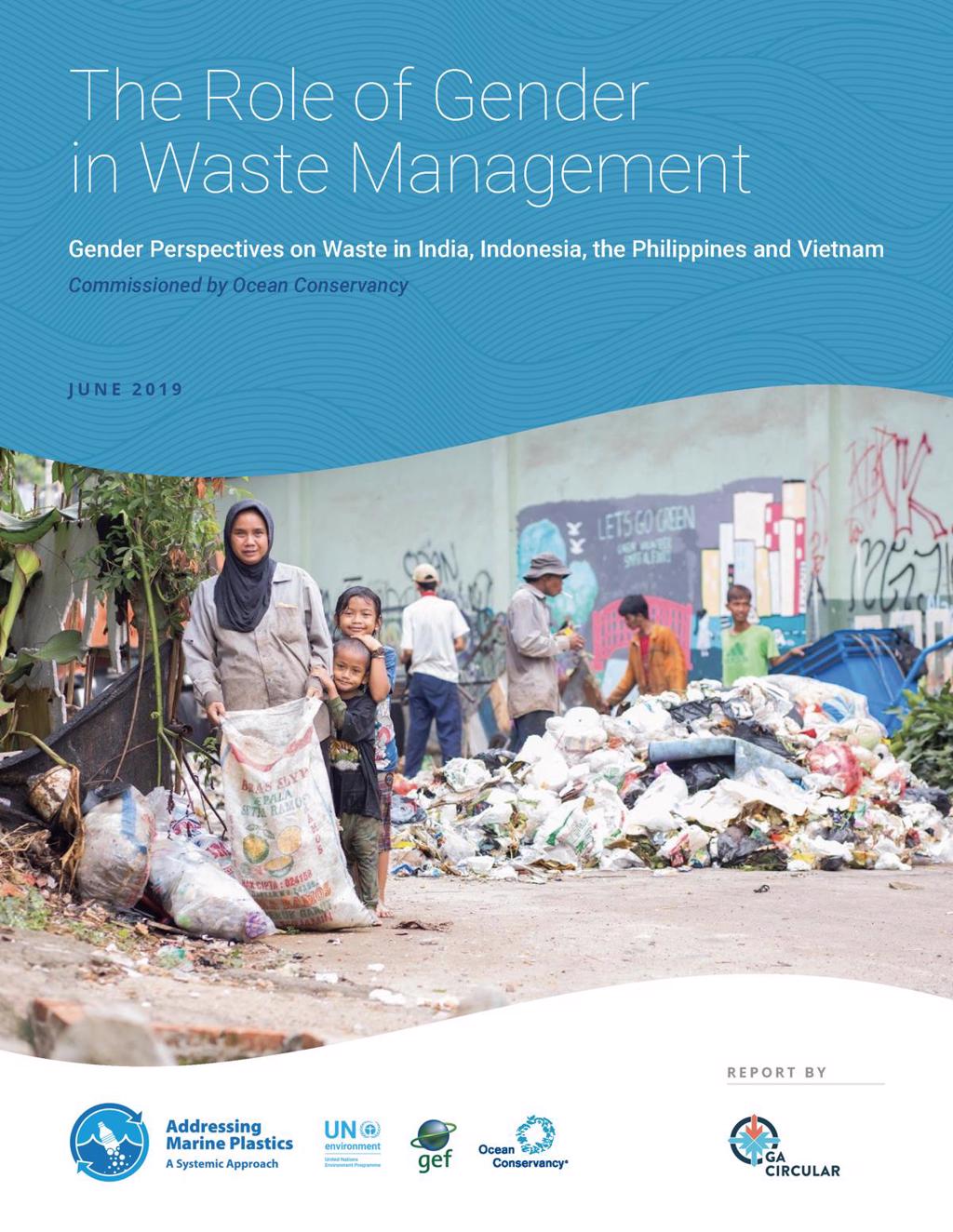
Ocean Conservancy Report: To Tackle Ocean Plastic Crisis, Engage Women in South and Southeast Asia
Based on extensive in-country interviews and surveys, The Role of Gender in Waste Management, assesses gender differences in waste collection and recycling systems in India, Indonesia, the Philippines and Vietnam. A 2015 paper in the journal Science found that these four countries are among the top 20 global contributors of ocean plastic, with Indonesia, the Philippines, and Vietnam figuring in the top five. Ocean Conservancy analysis has shown that investing in waste management systems in the region could signfiicantly curb the flow of plastic into the ocean.
"Many of us take for granted that someone will pick up our trash and recyclables from the curb once a week, or than clean water can come from a tap rather than a single-use plastic bottle. Unfortunately in many parts of the world, that isn't the case, and these differences contribute to the flow of plastic into the ocean," said Emily Woglom, executive vice president of Ocean Conservancy. "At its core, ocean plastic is a development issue; and as with all development issues, engaging women goes a long way".
Topline findings showed that across all four countries, women are more likely than men to handle and manage household waste disposal' women's participation in waste collection and recycling systems is often limited to the informal sector, where they have less jov security and access to healthcare and other resources; and women are generally more interested than men in learning about proper waste management. The report suggests that gearing public awareness and education campaigns about what and how to recycle toward women would be most effective in changing collective behavior. The report also identifies specific interventions - like providing vehicles - that would level the playing field for women working in the waste sector.
The report release comes less than a week after the unitied Nations celebrated World Oceans Day on June 8, which this year focused on the theme "Gender and the Ocean". In a statement marking the occasion, UN Secretary General Antonio Guterres said, "Confronting gender inequality is essential to achieving the ocean-related Goal and targets of the 2030 Agenda for Sustainable Development. We must ensure an end to unsafe work conditions and guarantee that women have an equal role in managing ocean-related activities.
Every year, approximately 8 million metric tons of plastic enter the ocean from land as a result of mismanaged material streams - an excess of non-recyclable plastics, a lack of waste collection, or limits in waste infrastructure like landfills and recycling facilities. Plastic impacts more than 800 marine species and has been documented everywhere from the deepest ocean trenches to Arctic ice.
